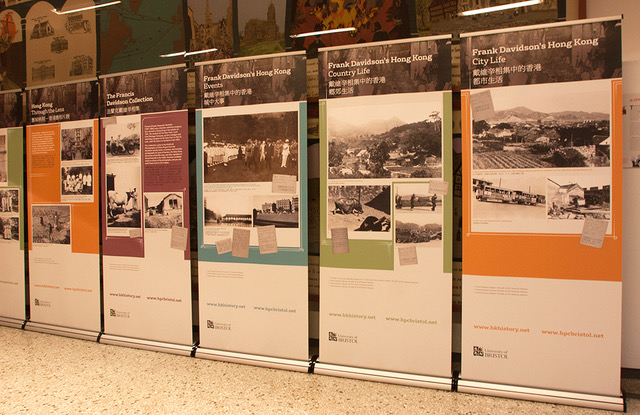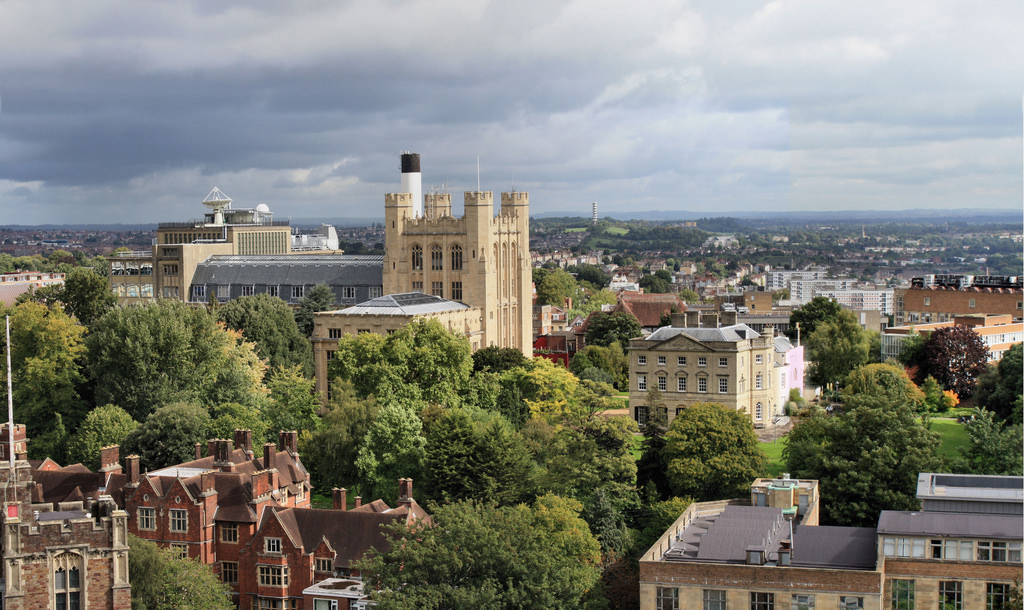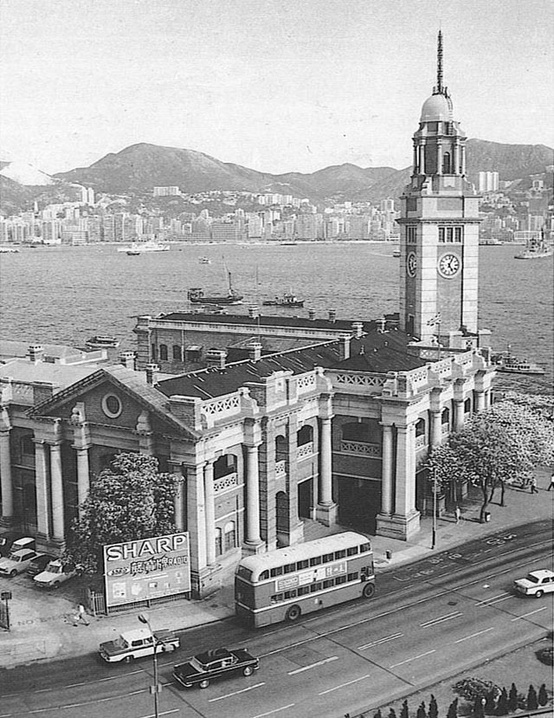As Hong Kong nears the halfway mark of China’s 50-years-unchanged promise to the city, the appetite for a more academic look at Hong Kong is growing both at home and abroad. The Education University of Hong Kong established the Academy of Hong Kong studies in 2015, and more recently local poets and scholars Tammy Ho Lai-Ming, Michael O’Sullivan, Eddie Tay, Michael Tsang joined hands to set up Hong Kong Studies, a peer-reviewed scholarly journal that ambitiously covers topics across different academic fields.
These efforts are echoed overseas. Back in 2015, the University of British Columbia spoke to HKFP about its plans to roll out Cantonese courses, but a year ago it went one step further and launched the Hong Kong Studies Initiative. Headed by scholar Leo Shin, the programme focuses on the city’s history, culture and language. The university’s interest in Hong Kong perhaps comes as no surprise; after all, Vancouver is dubbed “Hongcouver” due to its large Cantonese-migrant population.
In the United Kingdom – which colonised Hong Kong between 1842 to 1997 – Bristol University has launched the Hong Kong History Project in 2015 in order to uncover under-explored parts of the city’s history. HKFP speaks to Vivian Kong, a PhD student and historian-in-training from Hong Kong who is currently on a scholarship provided by the project to study the city’s history with the university.

1. What is the Hong Kong History Project, and how did it come about?
Our project was established in 2015 at the University of Bristol with the generous support of a private foundation interested in supporting new historical research. Whilst appreciating that the fascinating history of HK has received much academic focus, both the foundation and our Director Prof. Robert Bickers recognized that there is much about the city’s history that remains under-explored. Therefore, the Project has placed particular focus on facilitating the study of Hong Kong’s history by training a new generation of PhD students, organizing academic conferences and workshops, as well as coordinating an academic network “Hong Kong History Postgrads/ECRs” to support the wider academic community in the field across the globe.
We also actively participate in public engagement. Earlier this year, the Project funded and organized a pop-up exhibition of historic photographs of Hong Kong that the Project put up at the Bristol Museum & Art Gallery as part of the Chinese New Year events. The Project’s blog also runs a series of short self-introductions written by postgraduate and early career researchers working in the field to provide them a platform to communicate their research to a wider audience, and have recently begun a series of Q&As with prominent scholars working on Hong Kong history.
2. Tell us about your background in history? How did you become involved with the project and what is your role there?
Born and raised in Hong Kong, I did my BA and MPhil degrees at HKU. Halfway through my BA I decided that I wanted to pursue further study on the history of Hong Kong, and so I was thrilled to find out that the Hong Kong History Project offered a doctoral scholarship to support doctoral research in my field. I grasped the opportunity and was fortunate to be offered the scholarship.
I am now in the 3rd year of my PhD, and I’d say what I do on a day-to-day basis is conducting my doctoral research, which explores how multiracial interactions between Chinese, Eurasians, Portuguese, British, and Indians enriched, stretched, and complicated notions of Britishness in interwar Hong Kong. I also take up some administrative responsibility for the Project, including coordinating publication of the Project’s blog, approving and coordinating the Project’s academic network, and sharing news and findings on Hong Kong history on the Project’s social media accounts.

3. What is it about history, and in particular Hong Kong history, that fascinates you?
I have always been interested in history. But I never expected myself to study this much about Hong Kong history. It was only after I took a few courses on Hong Kong History during my BA at HKU that I realized how fascinating it is to learn about the past of the city where I was born and raised. Everything I learned suddenly seemed so relevant to my daily life, and provided much insight into understanding the society that I lived in.
The most memorable research experience I have was a meeting I had in Sydney in 2014 with an elderly British lady, whom I interviewed for my MPhil thesis on the evacuation of British women and children from Hong Kong in 1940. She left Hong Kong when she was eight, and has lived in Australia since. In our meeting, she told me, “I still consider Hong Kong as my home, and I am proud to tell people that I come from Hong Kong”. Under the assumption that no expatriates really considered Hong Kong “home”, I was so struck by her strong sense of belonging to the city. Along with other research findings, this testimony was the basis that my later academic work developed from.
4. Do you think it’s fair to say that study on Hong Kong’s history tends to focus on the colonial era, and that it is dominated by non-local-Chinese perspectives?
Because of availability of sources, the study on Hong Kong’s history naturally tends to focus more on the colonial era. I do not think the historiography is dominated by the so-called “non-local Chinese perspectives”. A great number of seminal texts in the field include those written by “local Chinese”, including Elizabeth Sinn, Ray Yep, and Law Wing Sang. It could, however, be dangerous to evaluate a historical work based on the researcher’s background. I don’t think many would agree that being “non-Chinese” obscured historians such as John Carroll from producing a critical analysis of Hong Kong history.
5. The tagline for HK History Project is “Rethinking a City’s History”. Could you explain how the project is doing this?
You asked earlier about “non-local-Chinese” perspectives: Hong Kong has always been a city of multiple communities, languages, and faiths. Our project aims to support new work into that rich and incredibly varied history.
6. A focus of the project seems on under-explored parts of Hong Kong’s history. Can you explain what the project wish to uncover and how it hopes to do so?
The Project does so by supporting doctoral research done on the rich history of the diverse peoples that lived in Hong Kong, their cultures, and Hong Kong’s regional and global interactions. These projects have uncovered the intra-Asian and global networks that cut across the city, illuminated the diverse identities that existed in the city, and pushed our understanding of Hong Kong beyond the edges of China and the British Empire.

7. What are some currently under-reported parts of Hong Kong history that you feel should be further explored? What are some challenges that you’ve encountered or that you foresee will come up as the project continues?
An obvious one would be histories of the non-Chinese communities in Hong Kong, especially the South Asians, without whom Hong Kong could hardly be as cosmopolitan and vibrant as it is today. I believe this has largely to do with the lack of personal accounts produced by these communities.
8. I took history and Chinese history all through secondary school, but there was always very little material devoted to Hong Kong history. Do you think the government should do more in this aspect?
I think it won’t hurt to know more about the city we live in. As I said, learning about Hong Kong history definitely provided me more perspective into understanding the society we’re in today, and learning about something this relevant to our lives would perhaps boost students’ interest in learning about history. It would be wonderful if more could be incorporated into the secondary school syllabus, but at the same time I do appreciate that may be limited by school hours and the already-overwhelming amount of teaching that history teachers have to deliver, etc.

9. What do you think is the significance of Hong Kong history in the bigger picture – especially at a time when we’re set to experience major political developments in just three decades’ time?
I can only answer this question with my own expertise and perspective as a historian. I think the history of Hong Kong provides historians a lens to understand wider issues such as colonialism, modern Chinese history, and history of migration. For non-historians, it is perhaps also important to understand Hong Kong through its past, for a closer examination of the city will allow us to better appreciate Hong Kong as an influential site that houses a diverse population and facilitates cultural exchange.
